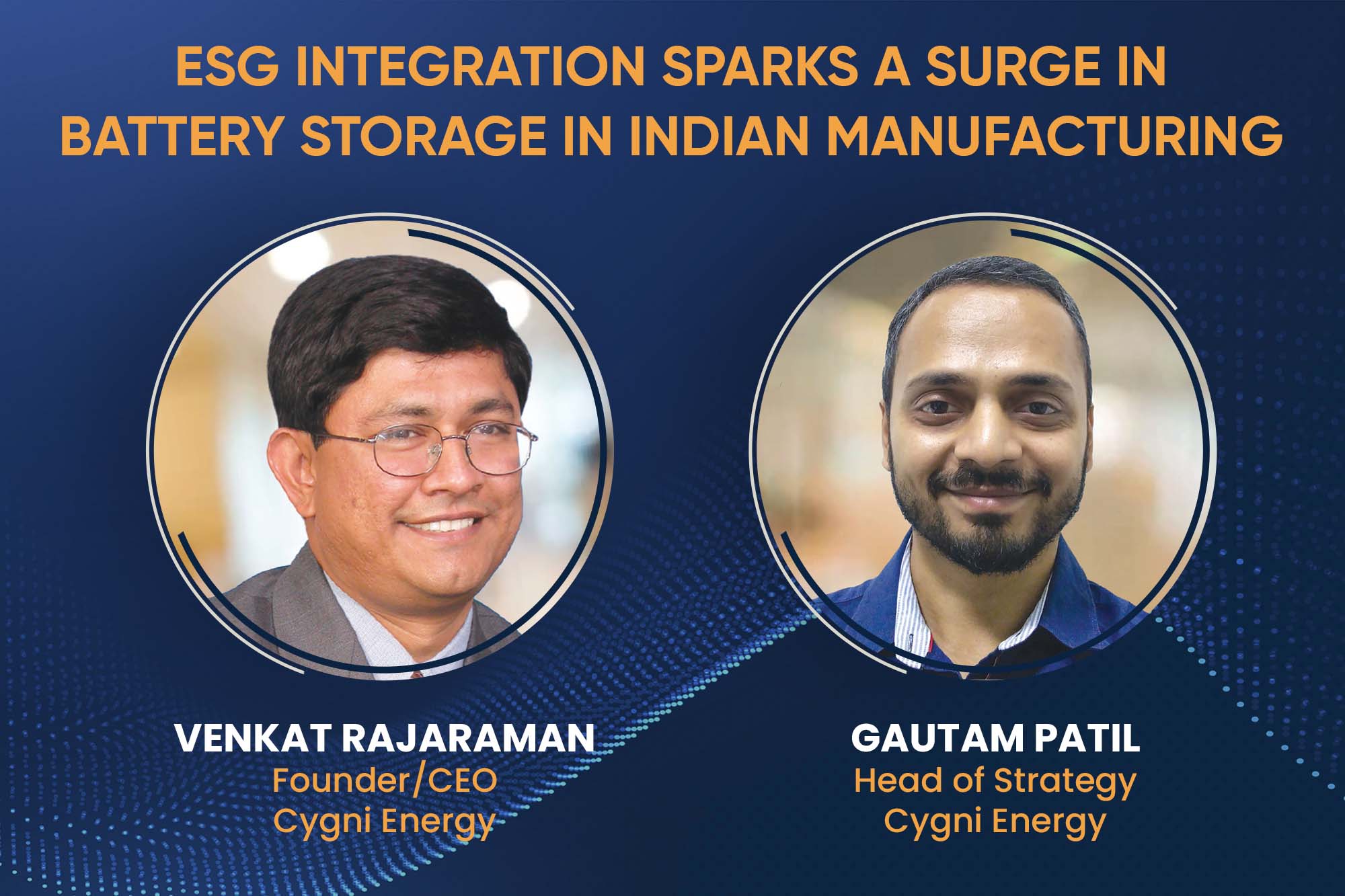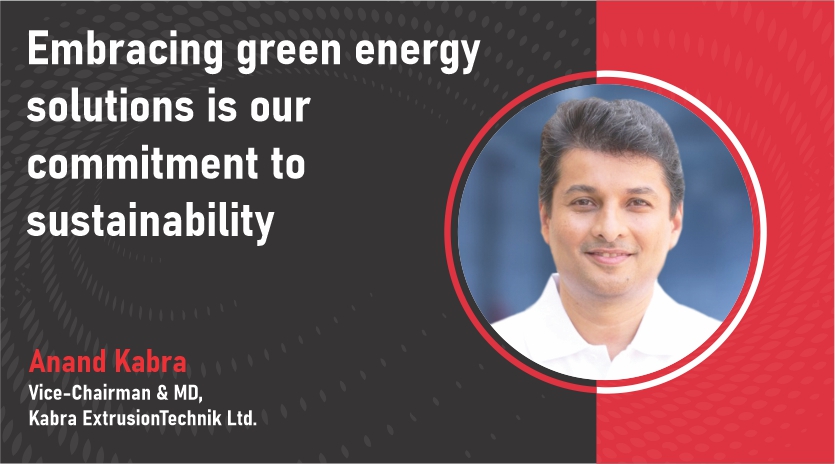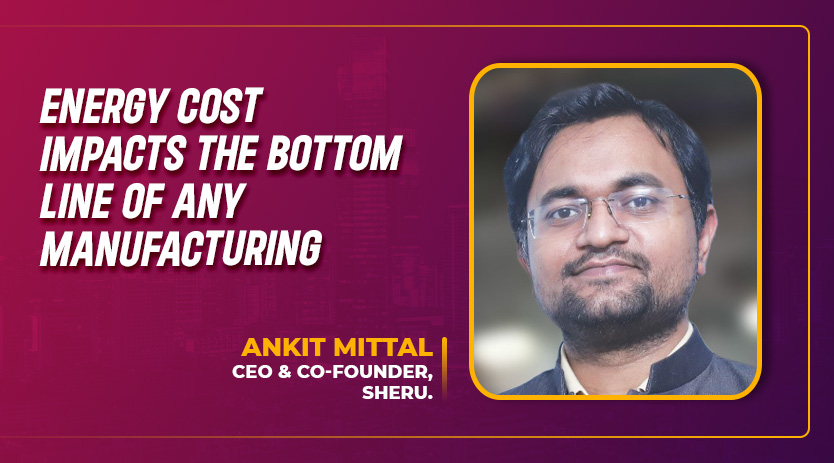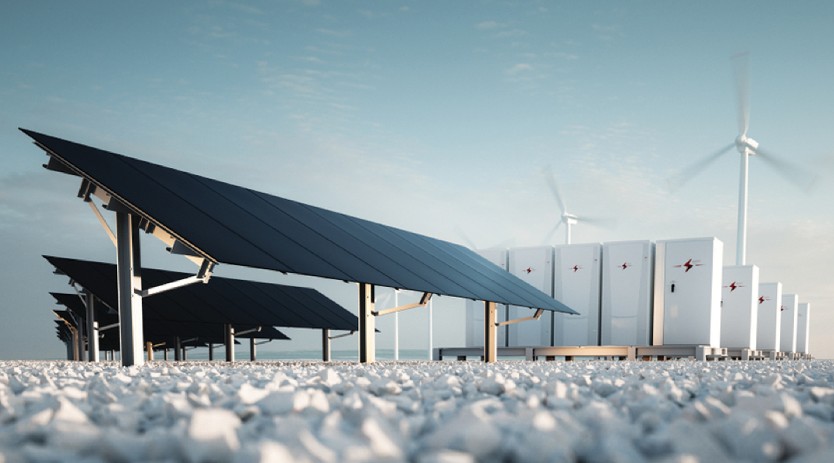ESG integration sparks a surge in battery storage in Indian manufacturing
By OEM Update Editorial May 10, 2024 7:09 pm IST
The manufacturing of battery storage systems is growing, and this aspect is revamping energy management. This will strengthen ESG commitments, decrease costs, and provoke sustainable power sources in India’s evolving industrial landscape.
Energy storage systems have been an integral part of most manufacturing setups. This is essential for critical payloads that cannot afford unscheduled downtime or to make up for unreliable grid quality. With the improving infrastructure of Indian distribution and the narrowing gap between demand and supply, these use cases for battery storage systems will give way to others. IESA (Indian Energy Storage Alliance) projects the overall battery storage installed capacity in India to grow ten times by 2030, with behind-the-metre applications accounting for over 5 GWh (translating to 5,000 crores at today’s battery pack prices). This growth of battery storage systems in manufacturing is expected to be driven by three critical factors.
The introduction of BRSR Core (Business Responsibility and Sustainability Reporting) by SEBI in 2021 and manufacturing emissions (contributing to a quarter of the carbon emissions in India) are now in the spotlight. BRSR Core requires the top 1,000 companies by market capitalisation to adhere to robust ESG reporting. This has a strong ripple effect, as these companies will also need to work closely with their supply partners (typically smaller MSME manufacturers). They must help them standardise their ESG reporting, in which water and carbon emissions are significant. Battery energy storage systems are an essential part of any attempt to integrate renewable energy into manufacturing and reduce emissions.
Secondly, with the constant reduction in lithium-ion storage prices (from about $220 per kWh in 2019 to around $120 per kWh in 2024), the economics of using battery storage for levelling energy usage are compelling. The prices are predicted to drop below $100 per kWh immediately. This is due to the ongoing commercialisation of technologies like sodium-ion and flow batteries, which are widely considered to be the inflexion points for adopting battery energy storage systems.
Lastly, the economic benefits of rooftop solar generation are evident in most states, resulting in increased adoption. However, as solar capacity increases, it also augments the risk of grid instability due to solar generation’s inherent intermittency. In countries and regions with a high share of solar capacity, there is a rising demand to enforce local storage capacity to absorb solar’s intermittency to some extent.
The ESG-related benefits, such as reductions in carbon emissions, also extend the benefits to cost savings. Peak shaving, which helps reduce electricity consumption from the grid during the more expensive peak hours, can help reduce utility costs. Since consumption may peak at different times than solar production (typically in the afternoon), storage systems can help to address this gap. The flat cost per kWh for solar and storage systems is approaching ₹10 per kWh. It is about 20% lower than the peak tariffs in some states, resulting in an attractive payback period.In India, deploying solar energy to offset maximum contract demand (MCD) represents a vital strategy for managing electricity consumption and balancing energy costs for industrial sectors. Integrating solar photovoltaic (PV) systems with storage provides a compelling solution to mitigate MCD charges, as businesses often face high tariffs based on their peak power usage. MCD is poised to play an increasingly significant role in India’s energy transition while simultaneously driving economic competitiveness and environmental stewardship. This will be possible with the continued advancement in solar technology storage and declining costs.
Battery storage systems are economically more viable for manufacturing facilities that rely on diesel generators for at least 10 hours or more monthly. These generators usually produce power at approximately ₹30 per kWh, making battery storage systems a cost-effective solution and enabling substantial savings.
India is estimated to have over 600 GW of rooftop solar potential. However, rooftop solar adoption has dropped significantly due to local regulations, which limit rooftop installations based on the local substation capacity. Battery storage systems allow industries to use their solar rooftop potential by creating a microgrid. This eliminates the need for DISCOM approvals while providing the benefits of energy independence and emissions reduction.
Thus, we see a very promising future for battery storage systems in manufacturing, which would benefit the economy and the environment.
Cookie Consent
We use cookies to personalize your experience. By continuing to visit this website you agree to our Terms & Conditions, Privacy Policy and Cookie Policy.























